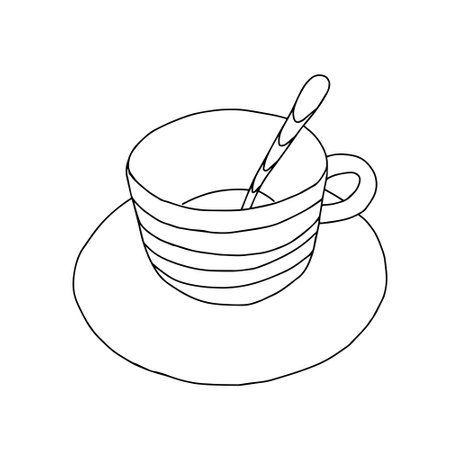Caffeine and the Brain: A Quick Science Primer
When we talk about morning versus afternoon coffee, it helps to first understand how caffeine works in your brain. Caffeine isn’t just a quick pick-me-up—it actually interacts with your brain chemistry in some fascinating ways that can affect your mental performance throughout the day.
How Caffeine Works
Caffeine primarily works by blocking a neurotransmitter called adenosine. Adenosine is responsible for making you feel sleepy as the day goes on. As adenosine levels build up, you start to feel tired. When you drink coffee, caffeine binds to those same receptors in your brain that adenosine would normally attach to—essentially “tricking” your brain into feeling more alert.
The Role of Adenosine
Here’s a simple breakdown of what happens:
| Time of Day | Adenosine Levels | Caffeines Effect |
|---|---|---|
| Morning (6 AM – 10 AM) | Low to moderate | Mild stimulation; may not need much caffeine |
| Afternoon (1 PM – 4 PM) | Higher buildup | Stronger impact; blocks more adenosine for better focus |
Why Timing Matters for Mental Efficiency
Your body runs on a natural rhythm called the circadian cycle. This internal clock controls when you feel awake and when you feel sleepy. In the early morning, your body naturally produces higher levels of cortisol—a hormone that helps wake you up. Because of this, drinking coffee right after waking might not be as effective as waiting an hour or two.
So, Morning or Afternoon?
If youre looking for a mental edge all day long, timing your coffee intake based on your brain chemistry might help. Morning coffee can give you a nice boost, but it might be less necessary if your natural energy is already high. On the other hand, an afternoon cup might provide more noticeable benefits when your energy starts to dip and adenosine levels rise.
2. Morning Coffee: Boosting Focus or Creating Dependency?
For many Americans, the day doesn’t officially start until that first sip of coffee. Whether its brewed at home or picked up from a favorite local café, morning coffee is deeply ingrained in daily routines. But while it’s seen as a productivity booster, how does it really affect mental efficiency in the long run?
Perks of the Morning Cup
Coffee in the morning can do wonders for alertness and focus. Caffeine stimulates the central nervous system and helps block adenosine — a chemical that makes you feel tired. This leads to increased concentration, quicker reaction times, and improved short-term memory.
How It Impacts Cortisol Levels
Your body naturally produces higher levels of cortisol — a hormone linked to alertness — between 6 a.m. and 10 a.m. Drinking coffee during this time can lead to overstimulation, which may reduce caffeines effectiveness over time and increase your tolerance.
Pros and Cons of Morning Coffee
| Pros | Cons |
|---|---|
| Boosts energy and focus quickly | May interfere with natural cortisol rhythms |
| Improves mood and motivation | Can lead to dependence or tolerance |
| Enhances morning productivity | Might cause mid-day energy crashes |
| Easily fits into daily routines | May disrupt natural sleep-wake cycles if consumed too early or in excess |
The Risk of Building a Dependency
If you rely heavily on your morning cup just to function, it might be a sign of caffeine dependency. Over time, your body may adapt to regular caffeine intake, requiring more to feel the same effects — which can lead to withdrawal symptoms like headaches, irritability, or fatigue if skipped.
Finding Balance in Your Routine
To get the most from your morning coffee without becoming overly dependent, consider delaying your first cup until mid-morning — around 9:30 to 11:00 a.m. — when cortisol levels begin to drop naturally. This timing allows caffeine to complement your body’s energy rhythm rather than disrupt it.
Quick Tip:
If youre looking for sustained mental performance throughout the day, pairing your coffee with a protein-rich breakfast and staying hydrated can help extend its benefits without needing extra cups later on.
Morning coffee has clear advantages when it comes to kickstarting the day, but being mindful of timing and consumption habits is key to using it effectively for long-term mental efficiency.

3. The Afternoon Pick-Me-Up: Powering Through the Slump
It’s no secret that many of us hit a wall in the afternoon—usually sometime between 1 p.m. and 3 p.m. This post-lunch slump can make it hard to stay focused, motivated, or even awake. That’s where a well-timed cup of afternoon coffee comes into play.
What Causes the Afternoon Slump?
The dip in energy during the early afternoon is often linked to our natural circadian rhythm. After lunch, blood flow shifts toward digestion, and we naturally feel more sluggish. Combine that with morning mental fatigue, and you’ve got a recipe for decreased productivity.
How Coffee Helps You Push Through
Drinking coffee in the afternoon can help sharpen your focus and boost your alertness right when you need it most. Caffeine blocks adenosine, a chemical in your brain that makes you feel sleepy, giving you that second wind to power through the rest of your day.
Benefits of Afternoon Coffee
| Benefit | How It Helps |
|---|---|
| Combats Fatigue | Increases alertness during low-energy hours |
| Improves Focus | Boosts concentration for late-day tasks |
| Mood Enhancement | A small caffeine lift can improve mood and motivation |
Timing Is Everything: Avoiding Sleep Disruption
While an afternoon coffee can be a game changer, drinking it too late might mess with your sleep. Caffeine has a half-life of about 5–6 hours, meaning if you drink a large latte at 4 p.m., half of that caffeine could still be active in your system at 10 p.m.
Tips for Smart Afternoon Coffee Habits
- Drink Before 2 p.m.: This helps reduce the risk of sleep disruption later on.
- Choose Smaller Servings: A smaller dose (like a single espresso shot) may give you enough energy without overdoing it.
- Avoid Sugary Add-ons: Skip high-sugar syrups or whipped cream which can lead to energy crashes.
An afternoon coffee isn’t just about staying awake—it’s about maintaining mental efficiency throughout the day. When timed right, it can help you finish strong without sacrificing tonight’s good night’s sleep.
4. Mental Efficiency Over Time: Which Schedule Wins?
When it comes to staying sharp and mentally energized throughout the day, the timing of your coffee can make a big difference. Let’s break down how morning and afternoon coffee habits affect long-term mental performance in areas like focus, creativity, memory retention, and cognitive stamina.
Focus
Morning coffee is often used to shake off sleepiness and kickstart concentration early in the day. It helps many people get into work mode faster. However, this boost can wear off by mid-morning, especially for those with high caffeine tolerance.
Afternoon coffee, on the other hand, can be a strategic way to fight the post-lunch slump. If timed right (usually between 1–3 PM), it can help restore focus just when energy levels dip naturally.
Creativity
Caffeine can support creative thinking by increasing alertness—but only to a point. Too much stimulation may hinder free-flowing ideas.
Morning coffee may help jumpstart brainstorming sessions when youre still fresh.
Afternoon coffee might work better for creative tasks that require a second wind or a new perspective after completing more routine tasks earlier in the day.
Memory Retention
A steady level of alertness supports better memory encoding and recall. Some studies suggest that caffeine consumed shortly after learning something new may enhance memory consolidation.
| Morning Coffee | Afternoon Coffee | |
|---|---|---|
| Memory Boost Timing | If taken before or during learning sessions | If consumed soon after learning something new |
This means both schedules can help memory—but at different stages of the learning process.
Cognitive Stamina
Morning coffee may give an early performance boost but could lead to an energy crash if not balanced with food or hydration.
Afternoon coffee, if taken too late, can interfere with sleep—which then negatively impacts next-day mental endurance.
| Mental Function | Morning Coffee Impact | Afternoon Coffee Impact |
|---|---|---|
| Focus | Kicks off workday strong; wears off mid-morning for some | Counters afternoon slump; extends attention span later in day |
| Creativity | Sparks ideas when mind is fresh | Adds fuel for late-day inspiration bursts |
| Memory Retention | Aids during learning phase in the morning | Supports memory consolidation post-study/work session |
| Cognitive Stamina | Might lead to early crash without proper nutrition/hydration | If timed poorly, may disrupt sleep and impact next day’s energy levels |
The best schedule might depend on your personal rhythm. Some people thrive on an early caffeine fix, while others benefit more from an afternoon dose to power through the rest of the day.
5. Smart Coffee Habits: Tips for Timing Your Brew
Finding the right time to enjoy your coffee can make a big difference in how alert and focused you feel throughout the day. Drinking coffee at the wrong time might lead to energy crashes or even mess with your sleep. Here are some practical tips to help you get the most out of every cup—without sacrificing mental clarity or rest.
Understand Your Body’s Natural Rhythm
Your body follows a natural cycle called the circadian rhythm, which affects how awake or sleepy you feel during the day. Cortisol, your bodys natural “alertness” hormone, peaks in the early morning—usually between 6:00 AM and 9:00 AM. Having coffee during this time can reduce its effectiveness because your body is already naturally alert.
Best Times to Drink Coffee
| Time of Day | Coffee Tip | Why It Works |
|---|---|---|
| 9:30 AM – 11:30 AM | Ideal time for your first cup | Cortisol levels begin to drop, so caffeine gives a real boost |
| 1:00 PM – 3:00 PM | Good time for an afternoon pick-me-up | Helps you stay focused without interfering with nighttime sleep |
| After 3:00 PM | Avoid caffeine unless absolutely necessary | Caffeine stays in your system for hours and may affect sleep quality |
Pair Coffee with Activities That Maximize Focus
If youre using coffee to help stay sharp, match it with tasks that require high mental effort like planning, writing, or problem-solving. Avoid drinking coffee just out of habit or boredom—it won’t give you the same benefits if your brain doesn’t need the extra push.
Keep Track of How You Feel After Each Cup
Everyone reacts to caffeine differently. Some people feel jittery after one cup, while others can handle more. Try keeping a simple journal or note on your phone to track when you drink coffee and how it makes you feel within an hour or two. This can help you find your personal “sweet spot.”
Aim for Quality Over Quantity
You don’t need a huge mug of coffee to boost brain power. A smaller serving of high-quality coffee—like a well-made espresso or pour-over—can deliver more focused energy than multiple cups of weak brew.
Bonus Tip:
Try switching to decaf after lunch if you still want the taste without the buzz. This helps keep your evening calm and supports better sleep habits.
Smart timing and intentional habits can make coffee a powerful tool for mental efficiency—not just a daily ritual.

